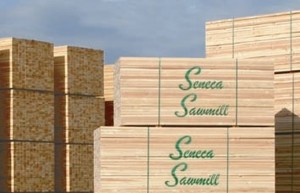 [5]Seneca Sawmill Featured for Commitment to Innovation, Environmental Sustainability
[5]Seneca Sawmill Featured for Commitment to Innovation, Environmental Sustainability
By Oregon Tax News [6],
Seneca Sawmill Company is transforming the way timber companies operate. The Eugene-based company was recently featured in IBM’s national publication, IBM Systems Magazine, for its visionary leadership and use of technology to build a thriving, sustainable business.
Founded in 1954, Seneca has continued to grow through challenging economic times for the timber industry, expanding to 650 million board feet of lumber per year—that’s 35 times its production in 1954. Seneca is now one of the largest timber companies of its kind in the United States. Originally started as a one mill operation, it has grown to four mills and now employs a multi-company structure that includes Seneca Sawmill Company, Seneca Jones Timber Company, Seneca Noti and Seneca Sustainable Energy.
According to IBM Systems Magazine, the key to Seneca’s success lies in its commitment to keep up with the times, particularly in the use and application of advanced technology to cut costs, save time and reduce waste across its multi-company operation.
Technological innovation is embedded into Seneca’s corporate culture and embraced organization wide—from upper management to shipping operators to back-office personnel. Nearly every aspect of Seneca’s workflow is hosted on advanced, user-friendly operating systems that integrate back-end transactions, order tracking, and sales and support efforts. Forklift operators are equipped with iPads to access and manage orders, paperless kiosks are used by suppliers and customers checking-in at various locations, and salespeople can give customers real-time shipping information, as well as update orders seamlessly. At its mills, laser technology ensures that Seneca wood is the straightest, most accurately cut wood in the industry.
Seneca’s approach to technology and environmental sustainability also go hand-in-hand in its culture of innovation. IMB reports that the company’s environmentally sustainable business practices help separate it from its competition. Nearly 100% of the company’s byproducts are repurposed for other uses. Items such as bark, chips, and sawdust are resold on the market. They are also turned into renewable energy to help fuel Seneca’s mills, as well as sold to local utility companies as energy sources. A company spokesman said the energy produced from Seneca’s byproducts can fuel 13,000 homes annually.
The result of Seneca’s commitment to innovation is that it continues to grow, even as many of its competitors struggle or have closed in recent years. By seeking technological solutions to the difficulties that come with a large, complex organization, Seneca is proving that innovation can help a business thrive in even the most challenging industries.